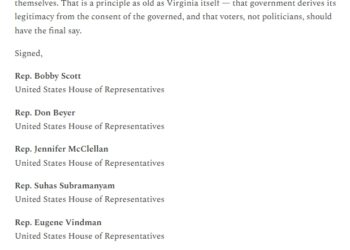
The terms “environmental” and “environmentalism” have become so tied to socio-political movements on the “left” that their usefulness in encompassing a wider group of American’s under the same environmental agenda has become next to impossible. What is needed instead is a new set of terms, phrases, and ideas that can appeal to a wider American audience while not betraying the core beliefs and values that have defined environmental movements in the U.S. since the 1970s. Conservation and conservationism constitute a new set of terms that should be seriously considered as the struggle for the hearts and minds of Americans becomes more important with each passing day.
Within the terms conservation and conservationism is an appeal to all Americans to preserve what is truly a part of America’s storied past: Yellowstone National Park, The Hudson River, the Sierra Nevada Mountains, the Rocky Mountains, the Chesapeake Bay, etc. These two terms also speak to environmentalists who value the preservation of living organisms (including human beings!) in and of themselves. Conservationism is a term around which newly minted ideas can be constructed to bring various segments of the American population into the sphere of environmentalism.
When the terms conservation and conservationism are used, what is being alluded to is a preservation of an American way of life. The trees that once dotted America’s landscape stood for a wide-open space of freedom, social mobility, and new beginnings. America is no longer a spacious frontier to be opened, but what land and wildlife are left are a reminder of the liberal principles that our country’s foundation has stood upon from day one. Conservation to those “on the left” also means preserving our “pristine” ecosystems and their numerous forms of living organisms that were once supposedly the mainstay of North America.
Hunters and other kinds of outdoorsman know full well the usefulness of conversation, as their sport is predicated upon the presence of abundant wildlife that can be killed for game. Just as naturally, conservation in this respect applies to those in the environmental community who’ve attempted to fight back the tide of dwindling ecosystem populations, a loss which could send shockwaves up and down the ecological spine that we all rely upon for life. Therefore, regardless of whether your “bag” is to kill or to protect outright, in the end each of these groups wants to preserve wildlife stocks.
Environmental and environmentalism conjure up images of “tree-huggers” and “crazies” to many individuals in the U.S., many of which are themselves sympathetic to conservationist causes. This must change if the “environmental agenda” is to be obtained. Although I didn’t go into great detail about the pros and cons of becoming conservationists in terms of marketing rhetoric, the stigma associated with “environmentalism” and “environmental” subsequently lend to the need to change how those of us in this camp market ourselves and our ideas, especially in Virginia.
This is a strategic juxtaposition that may be the elixir to 21st Century America’s sluggish moves towards saving our planet.

![[UPDATED with Official Announcement] Audio: VA Del. Dan Helmer Says He’s Running for Congress in the Newly Drawn VA07, Has “the endorsement of 40 [House of Delegates] colleagues”](https://bluevirginia.us/wp-content/uploads/2026/02/helmermontage.jpg)
















